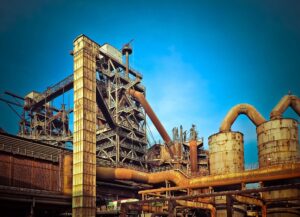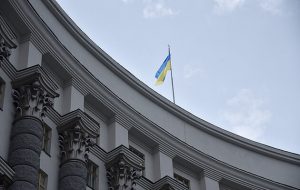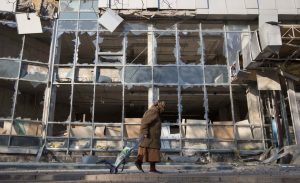
Some 67.1% of Ukrainians are confident that a personal meeting between President of Ukraine Volodymyr Zelensky and President of Russia Vladimir Putin will contribute to resolving the situation in Donbas, according to a sociological survey conducted by the Social Monitoring Center from June 29 to July 9 and presented at the Interfax-Ukraine news agency on Wednesday.
At the same time, 30.3% of respondents are sure that the meeting of Zelensky and Putin will not contribute to the restoration of peace in Ukraine, the return of Donbas and the establishment of good-neighborly relations with Russia, and 2.6% found it difficult to answer.
At the same time, 49.3% of respondents believe that Zelensky should hold a personal meeting with representatives of the self-proclaimed republics in order to return Donbas and peace to Ukraine, 41.1% expressed doubts about the effectiveness of such a meeting, and 9.6% found it difficult to answer.
Also, 51% of Ukrainians believe that the implementation of the Minsk Agreements on the settlement of the conflict in Donbas is in the interests of Ukraine, 39.6% are against such a statement, and 9.4% refused to answer.
The sociological survey was carried out throughout Ukraine, with the exception of the temporarily occupied territories of Donetsk and Luhansk regions and the Autonomous Republic of Crimea, among people over 18 years old by the method of personal interviews at the place of residence of the respondents. The sample is 3,011 respondents.

The Ministry for the Reintegration of the Temporarily Occupied Territories of Ukraine says that the Economic Development Strategy of Donetsk and Luhansk regions will start working in January 2022.
“We set ourselves such an ambitious goal, the strategy will actually start working on January 1, 2022, when all other legislative initiatives are adopted and implementation initiates,” First Deputy Minister for Reintegration of the Temporarily Occupied Territories of Ukraine Rostyslav Zamlynsky said during a discussion under the National Platform Dialogue on Peace and Safe Reintegration on Tuesday.
According to him, in early May, the draft document will be sent for approval to the central executive authorities, after which it will be considered at a government meeting. Further to the strategy, an action plan for the next two years will be developed.
As reported, in December 2020, the Cabinet of Ministers of Ukraine approved the Concept of Economic Development of Donetsk and Luhansk regions until 2030.

The Cabinet of Ministers of Ukraine has approved the Concept of economic development of Donetsk and Luhansk regions until 2030.
The relevant decision was made at the Wednesday government meeting.
The purpose of the document is to determine the conceptual approaches and main directions of the strategy for the economic development of Donbas for the creation of regulatory, institutional and organizational conditions for the formation and development of the economy of Donetsk and Lugansk regions.
According to the concept, the reboot of Donbas economy will take place in two stages: firstly, under current conditions in the controlled territory of the regions, secondly, throughout Donetsk and Luhansk regions after reintegration.
According to Prime Minister of Ukraine Denys Shmyhal, these territories require additional incentives that will create an attractive platform for involving investments.
In particular, this is about development in the direction of the real sector of the economy, industrialization, the development of critical infrastructure and logistics.

Restoring the temporarily occupied parts of Donetsk and Luhansk regions will require around $10 billion, Ukrainian President Volodymyr Zelensky’s economic advisor Oleh Ustenko said.
“Preliminary estimate: that’s around $10 billion, which will be needed to restore the uncontrolled territory. That is 5-7 per cent of our GDP,” Ustenko told The Donbas.Realities radio station on Saturday.
Once those areas have been reintegrated, it will be necessary to set up a fund with money from donors among others, he said.

Ukraine is developing an ambitious economic strategy for Donbas and in September its roadmap may be presented to the Cabinet of Ministers of Ukraine, said Vice Prime Minister of Ukraine – Minister for Reintegration of Temporarily Occupied Territories, First Deputy Head of the Ukrainian delegation to the Trilateral Contact Group Oleksiy Reznikov.
“Ukraine is currently developing an ambitious new economic strategy for the east of the country. A key focus is the development of the parts of Donetsk and Luhansk regions currently under Ukrainian control. This approach is perhaps best described as a Ukrainian take on the notion of “special status” for the region, with the goal of transforming the investment climate and implementing a new economic model at the regional level. According to his idea, this process should begin to gain momentum as soon as possible in the regions of Donbas, which are currently under the control of the Ukrainian government, and then it could spread to the regions occupied by Russia after their liberation.
Reznikov said that investors work in hot spots in the modern world, and he held dozens of conversations with foreign diplomats, international business representatives and Ukrainian investors who are much more concerned about the state of the Ukrainian justice system than proximity to the front lines.
“Our goal is to create a special investment regime in the part of Donbas controlled by Ukraine. We consider the extension of the rules of international commercial arbitration to the region as an integral part of these plans. Additionally, the Ukrainian state should assume at least some of the insurance burden against the kind of political and military risks that are hard for investors to predict. To help make this approach sustainable, we envisage a special-purpose fund to encourage and assist investments rather than relying on donor aid,” he said.
The Deputy Prime Minister hopes to present to the Ukrainian government a roadmap for the economic development of Donbas in September. “It will then take an estimated six months to prepare the necessary bills. This will require expert input. Ideally, this input would come direct from potential future investors,” he said.
Reznikov drew attention to the need to “set the right tone from the outset. This is not a matter of crisis relief for the Donbas, but a bid to create an advanced and innovative economic zone that can have a positive impact on the whole of Europe.”
In his opinion, in the context of the crisis caused by the coronavirus epidemic, Ukraine is ideally suited for diversifying production outside China and having high-quality production facilities closer to the EU countries, and the Donbas region has many specific characteristics necessary to play a leading role in this process.
Reznikov considers it obvious that in the seventh year of the war, the Russian interpretation of “special status” is unacceptable for Donbas.
“Rather than helping to resolve the conflict, Moscow’s approach is tailor-made to precipitate the disintegration of Ukraine. The sooner this dead end model is discarded, the better. A durable peace can only be achieved by creating a brighter future for the people of eastern Ukraine that undermines Russia’s ability to destabilize Ukrainian society,” he said.
Ukraine’s deputy prime minister drew an analogy that European investment could create a “new era of growth opportunities” in Donbas, as they once turned the region into one of the continent’s industrial engines in the nineteenth century.
Reznikov also pointed out that the aggression of the Russian Federation “destroyed the Donbass of the pre-war era” and it is already pointless to talk simply about “restoring the region”, and instead, one should focus on creating a new economy.
“The rebuilt and renewed Donbas can become the center of new approaches to production. The tragedy of the war has turned Ukraine’s industrial centers into ruins, but this devastation also creates space for bold innovations and original thinking, which are not always possible in more developed economic conditions,” he said.

The Ukrainians are ambivalent about the possibility of granting autonomy within Ukraine to the temporarily occupied territories of Donetsk and Luhansk regions for the purpose of ending hostilities and peaceful conflict settlement in Donbas.
During a nationwide poll by the Social Monitoring Center on July 8-15, 42.7% said they “would support” or were “likely to support” such an autonomy for Donbas, according to the poll’s findings unveiled at an Interfax-Ukraine press conference in Kyiv on Tuesday .
At the same time, 39% would rather “not support” or were “certain not to support” a Donbas autonomy.
On the regional level, the autonomy is seen as a solution by 64.2% in Donbas, 59.2% in the south, 57.3% in the east and 41.6% in the Central Region, and by only 15.7% in the west of Ukraine.
Most in the Western Region (66.9%) said they would “rather not support” or were “certain not to support” a decision to grant Donbas an autonomy. The figures for central, eastern, southern and Donbas regions were 38.2%, 27.2%, 21.9% and 17.5%, respectively. A total of 18.3% were undecided.
Asked whether direct talks with Russia are necessary to attain a peace, 38% said yes, absolutely, 31.6% were inclined to agree and 8.7% were inclined to disagree, and 12.1% said absolutely not. Most of those who said such talks were necessary for peace in the east and Donbas were 50.2% and 46.5%, respectively; in the latter group, 20.7% were respondents in western Ukraine.
The poll entitled “Opinions and views of the Ukrainian population, July 2020,” surveyed 3,035 respondents; margin of error: 1.1-1.9%.